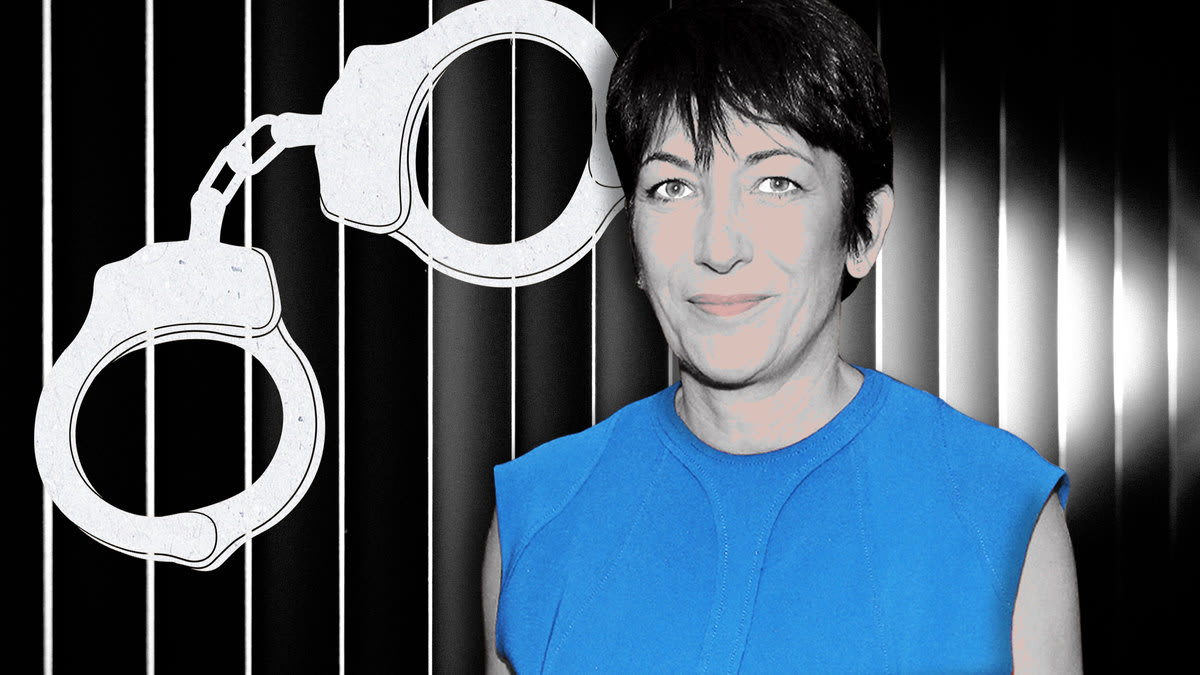Photo Illustration by Thomas Levinson/The Daily Beast/Getty
When your partner is a monster, you can appear harmless by comparison. But appearances can be deceiving.
In the case of Ghislaine Maxwell, the jury wasn’t fooled by the relatively greater culpability of her benefactor, Jeffrey Epstein, the financier and alleged sexual abuser. A federal jury on Wednesday convicted the British socialite of conspiring with Epstein to engage in sex trafficking of girls as young as 14 between 1994 and 2004. She was convicted on five of six counts in all, and faces a ten-year mandatory minimum sentence and a maximum penalty of life in prison, though the actual sentence will be informed by sentencing guidelines based on various factors. Maxwell also faces a subsequent trial on two counts of perjury, which were severed from this trial, for allegedly lying in depositions about her claimed ignorance of Epstein’s abuse schemes.
But while this case may have involved jet-setting millionaires, it was no different from the seedy cases of human trafficking that occur every day in America.
Throughout the three-week trial, the defense used the scapegoat defense, pointing to the figurative empty chair that would have been occupied by Epstein, had he not taken his own life in 2019 while in federal custody in this case. Maxwell’s attorneys cast Epstein as the driving force behind the trafficking scheme. That may have been true, but that did not mean exoneration for Maxwell.
In fact, the evidence at trial showed that she was an essential component of the scheme.
It was Maxwell who recruited and groomed the victims, earned their trust, and normalized sexual behavior so that they could be exploited. She was, as prosecutors argued, “the key to the whole operation.” Her motive for assisting Epstein? Prosecutors pointed to the $30 million Epstein paid her between 1999 and 2007.
The term “sex trafficking” conjures the image of a victim being kidnapped, bound and caged against one’s will. In fact, more often, predators use lies and deception to entice vulnerable victims to trust them before engaging in sexual abuse. As an expert witness testified at the trial, the grooming process may involve giving gifts, building trust and attachment through expressions of concern, bringing up sexual topics in conversation, and slowly escalating sexual interactions.
In my experience as a prosecutor, I found that traffickers are usually expert manipulators who retain power over their victims with a variety of carrots, such as money, cell phones, clothing, and illicit drugs. They also use sticks, such as shame, and threats of disclosure or physical harm. For a troubled teenager, it is difficult to even describe what has happened to them, let alone have the courage to tell someone.
Maxwell and Epstein followed this playbook in their sex-trafficking scheme. During the trial, four women testified to a similar pattern of abuse. Using only their first names or aliases, they testified about how Maxwell and Epstein recruited them during what appeared to be chance meetings. Prosecutors noted that the couple selected girls from families that were struggling financially; two were being raised by single mothers.
For her part, Maxwell portrayed Epstein as a “benefactor” who liked to help people. But wealth was just another instrument of her evil.
She built trust by taking the girls shopping, and expressing interest in their schooling and home lives. The victims told eerily consistent stories about how Maxwell groomed them by talking about sex and teaching them how to give massages, which normalized physical touching. Eventually, the massages evolved into sexual encounters with Epstein, for which they received money and gifts. Maxwell would call to set up appointments for sex with Epstein, and sometimes Maxwell joined in the abuse.
At trial, the defense used the usual tactics against survivors of sexual abuse, calling their testimony “erroneous memories,” attacking their credibility, and portraying them as gold diggers interested only in obtaining a payout. This time, the re-victimization gambit failed. Perhaps ordinary people who end up on juries are finally getting wise to the ways of abusers.
In life, Epstein was a predator. In death, he would not be the scapegoat. Epstein may have been the one with the voracious appetite for young girls as his sexual playthings, but his culpability does not diminish Maxwell’s guilt. As the jury clearly saw, this was a case of both/and, not either/or.
Monsters come in many shapes and sizes.

